It takes a lot of brainpower to run a country—see how the top presidents stack up!
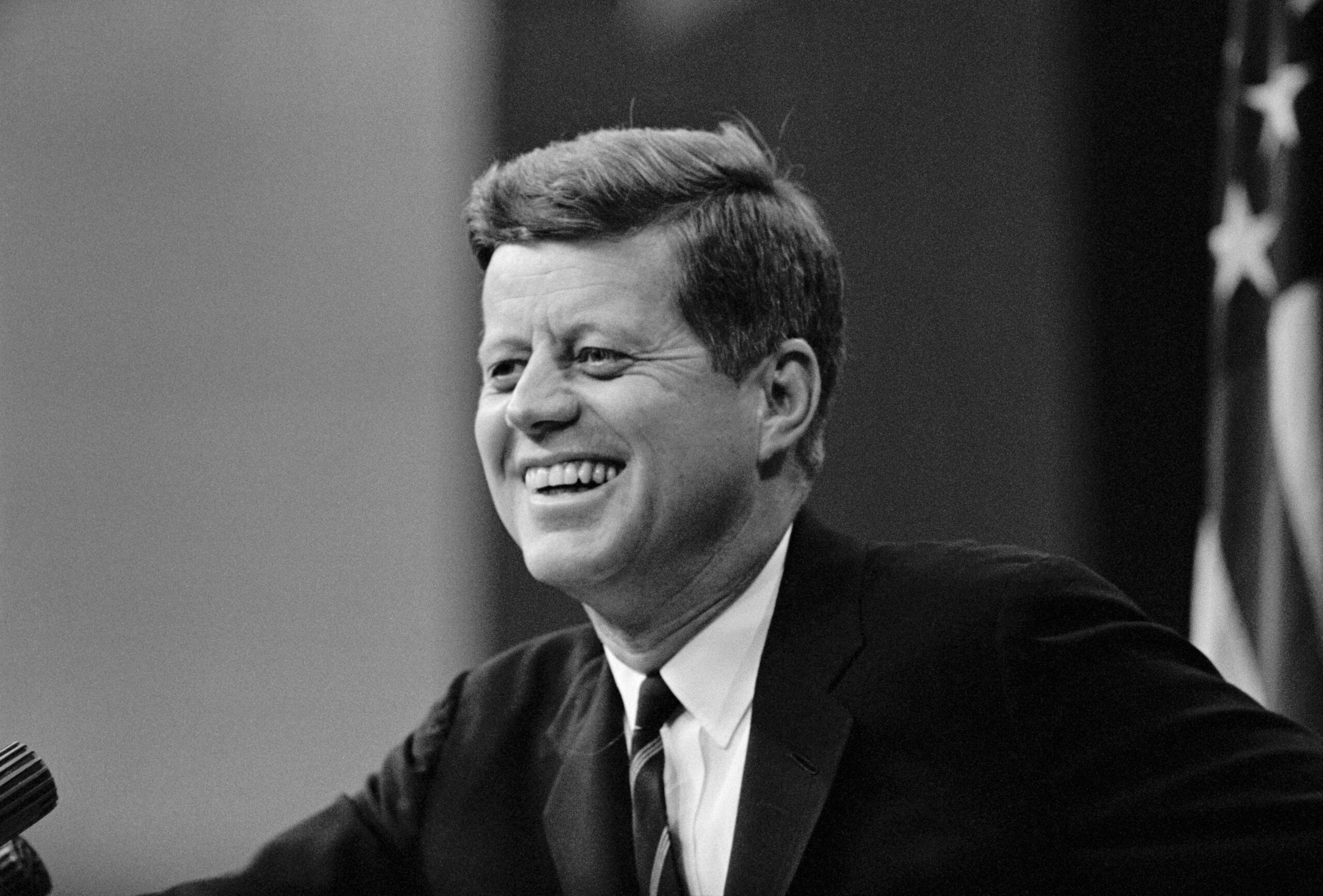
The 13 Presidents with the Highest IQ Scores

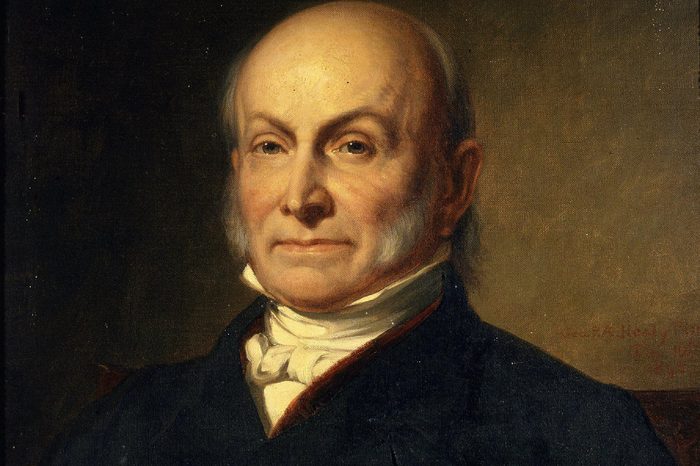
John Quincy Adams
At a score of 175, Harvard grad John Quincy Adams tops the list of presidents ranked by IQ. He studied all around the world, becoming fluent in seven languages throughout his life. Without even completing law school, he became a lawyer. A notable diplomat, Adams first served as Secretary of State for President James Monroe. Highlights of his government career included shaping the Monroe Doctrine and helping to negotiate the Treaty of Ghent, which ended the War of 1812. He was called “Old Man Eloquent” for his top-notch oratorical skills and has even been described as one of the fittest presidents.
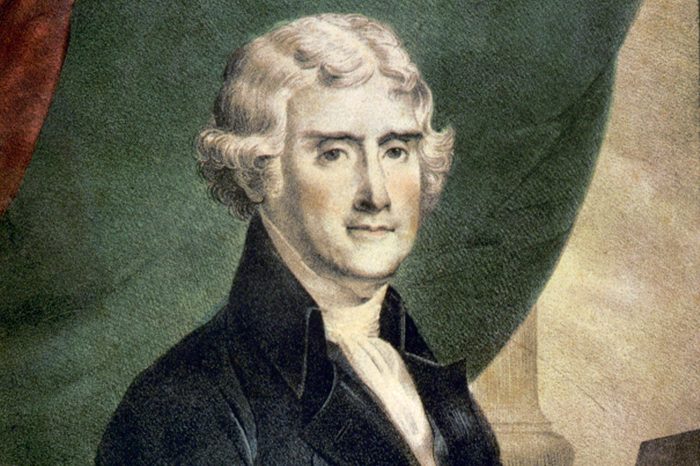
Thomas Jefferson
Thomas Jefferson had so many books to feed his IQ of 160 that he sold them to the Library of Congress after it was ransacked by the British. A true Renaissance man, he boasted achievements in various fields, including economics, architecture, food and wine, agriculture, paleontology, astronomy, music and writing. Oh, and he wrote the Declaration of Independence and doubled the size of the United States in 1803 with the Louisiana Purchase.
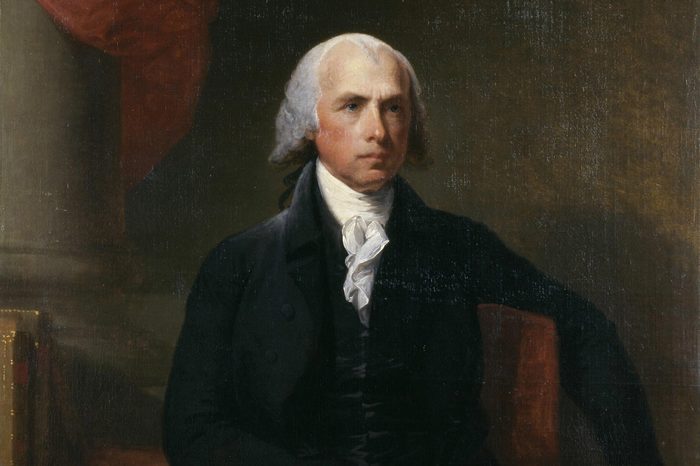
James Madison
At 5 feet 4 inches, James Madison is the shortest U.S. president, but his intelligence was certainly impressive: His IQ was estimated to be 160. A scholar at heart, he is considered Princeton’s first graduate student, though he didn’t technically earn a degree. He is known as the “Father of the Constitution” and authored the Bill of Rights. His wife, Dolley, also helped define the role of first lady with its social and philanthropic aspects.
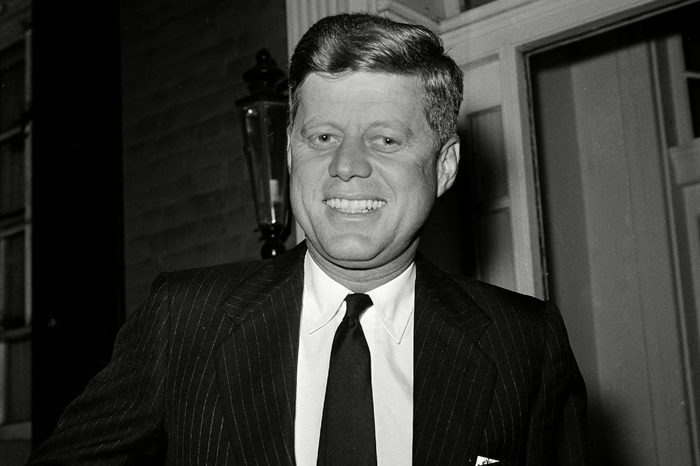
John F. Kennedy
Even with an IQ of 159.8, John F. Kennedy had a reputation in childhood of being a poor student, preferring games and sports. He came around, though, and graduated from Harvard in 1940. A Navy man, he won a Purple Heart in World War II for heroic actions in the South Pacific, and after being elected to both the House and Senate, he became the second-youngest president in history and the first Catholic president.
During his tenure, he dealt with the Cuban Missile Crisis and authorized the Bay of Pigs invasion, in addition to creating the Peace Corps and helping to pass the Civil Rights Act of 1964. He was also the only president to win a Pulitzer Prize. What many people also don’t know is that JFK’s achievements were accompanied by his struggle with chronic health problems, which threatened his life several times.
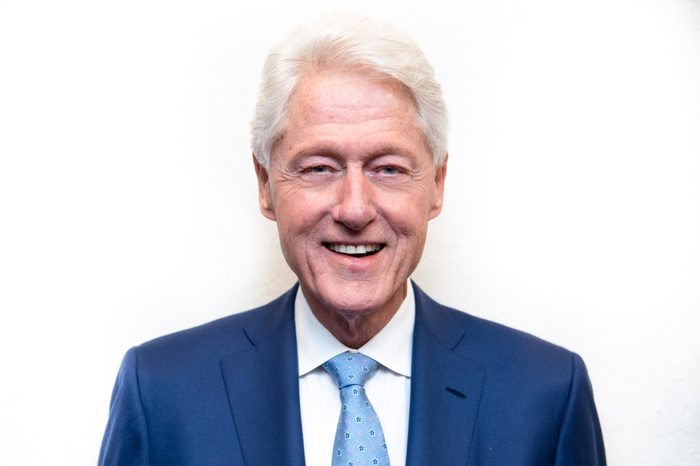
Bill Clinton
Bill Clinton’s IQ was estimated to be 159. Born in Arkansas, he later attended school at Georgetown, Oxford and Yale, where he met his wife, Hillary Rodham. He started his political career in the Arkansas state government before becoming president in 1992; one of his big achievements while in office was the signing of the North American Free Trade Agreement. His smarts weren’t enough for him to avoid impeachment, however, as Congress voted to impeach Clinton over his relationship with then-White House intern Monica Lewinsky, although he stayed in office for another two years afterward.
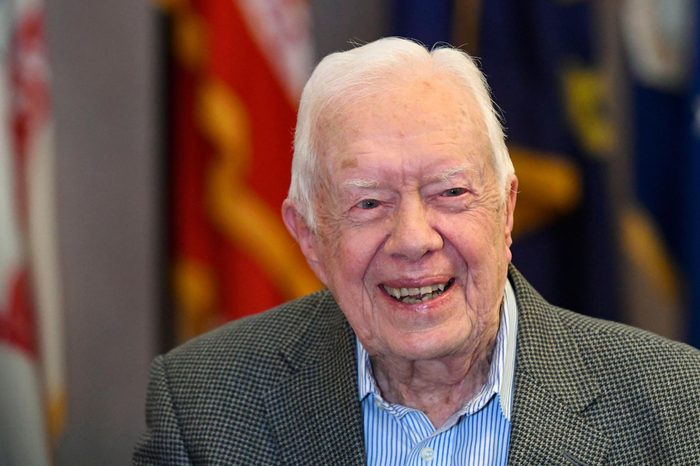
Jimmy Carter
Jimmy Carter came from humble beginnings in rural Georgia, but he was no less intelligent, with an IQ of 156.8. He undertook significant diplomatic efforts during his presidency. He continued his humanitarian efforts after leaving the White House, becoming a professor at Emory University, receiving the Presidential Medal of Freedom and ultimately winning the Nobel Peace Prize. Jimmy Carter’s housing initiative gave many needy families a place to call home.
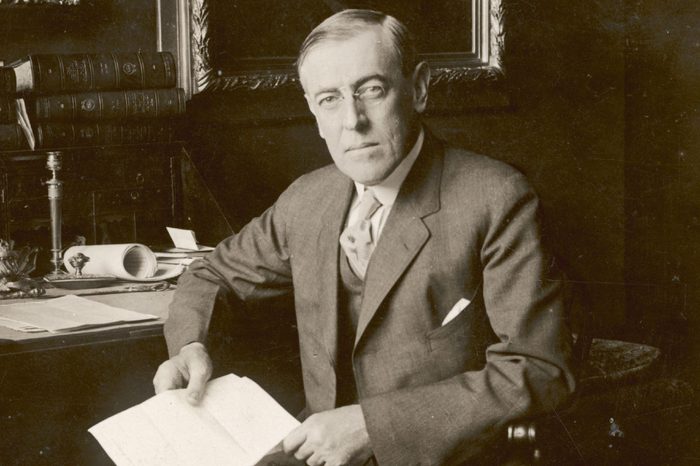
Woodrow Wilson
Woodrow Wilson served as president from 1913 to 1921, and his IQ of 155.2 didn’t hurt as he made sweeping achievements in world affairs and American politics. He was born in Virginia a few years before the Civil War and studied at Princeton, the University of Virginia and Johns Hopkins. Wilson was actually a professor before his government career. After leading the country through World War I during his presidency, he advocated for world peace and created the League of Nations to achieve it, for which he earned a Nobel Peace Prize.
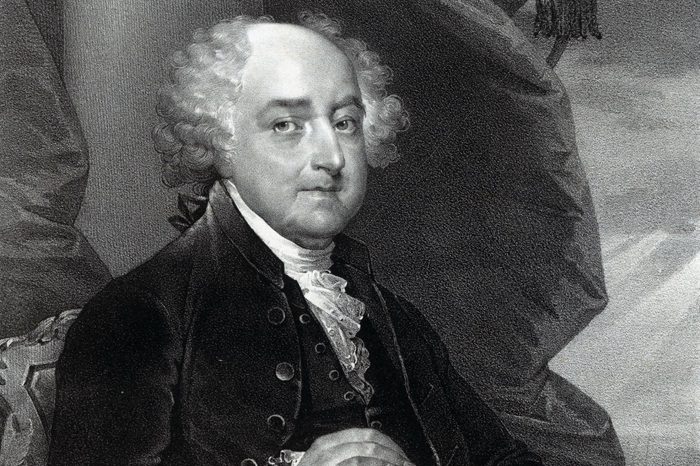
John Adams
Not to be confused with his son, John Quincy Adams, John Adams had an IQ of about 155. If you want to get a feel for what this famous president was like, you can check out the extensive archive of letters between Adams and his wife, Abigail. He was the only one of the first five presidents to not hail from Virginia—he was from Massachusetts, and he was the one to draft the Massachusetts Constitution, which is still in effect today.
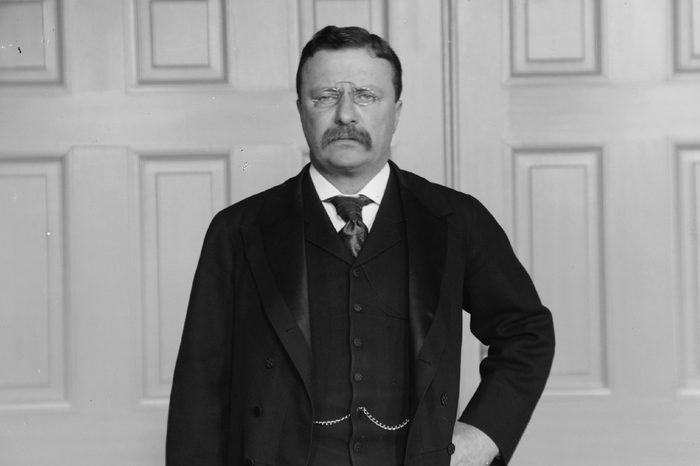
Theodore Roosevelt
The Constitution Center called Teddy Roosevelt “one of the most dynamic presidents in White House history,” and with an IQ of 153, he was also one of the smartest. He came from a wealthy New York family and attended Harvard and Columbia Law School, though he did not graduate from the latter. He is known as the Father of the U.S. Navy and won a Nobel Peace Prize for his peacemaking efforts during the Russo-Japanese War.
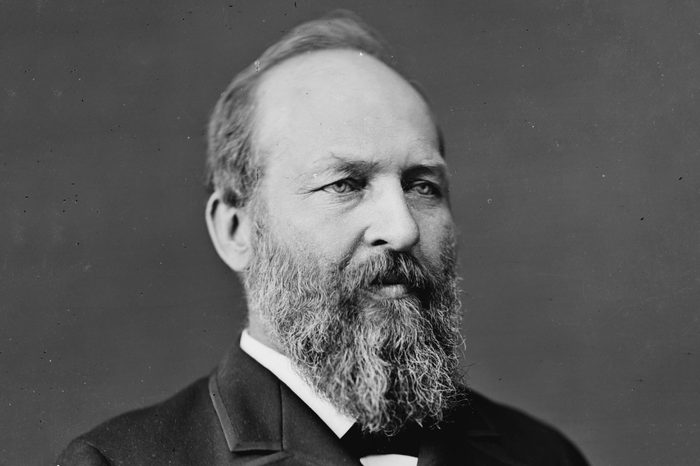
James Garfield
An interesting fact about James Garfield is that he had a notably high IQ of 152.3, though he only served 200 days in office before being assassinated. Before that, though, he attended the famed liberal arts school Williams College and later worked in Ohio’s state government for nine terms. He was also a Union officer in the Civil War.
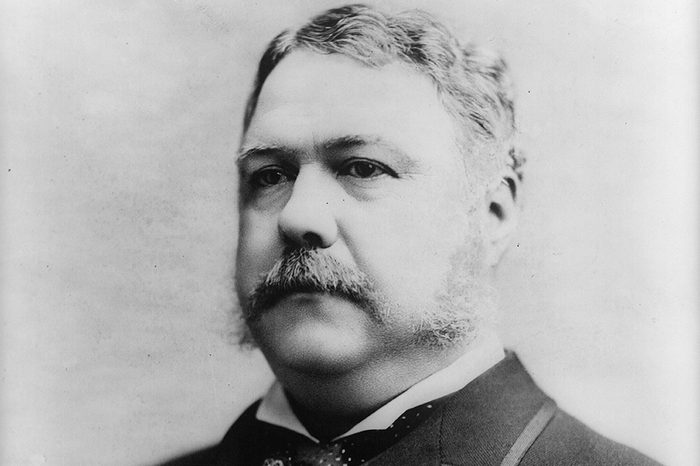
Chester Arthur
Chester Arthur and his IQ of 152.3 took office after the death of his predecessor, James Garfield. Born in Vermont to an Irish father and an American mother, he attended Union College in upstate New York and later became a lawyer in New York City, where he worked on several high-profile civil rights cases before entering politics and becoming president in 1881.
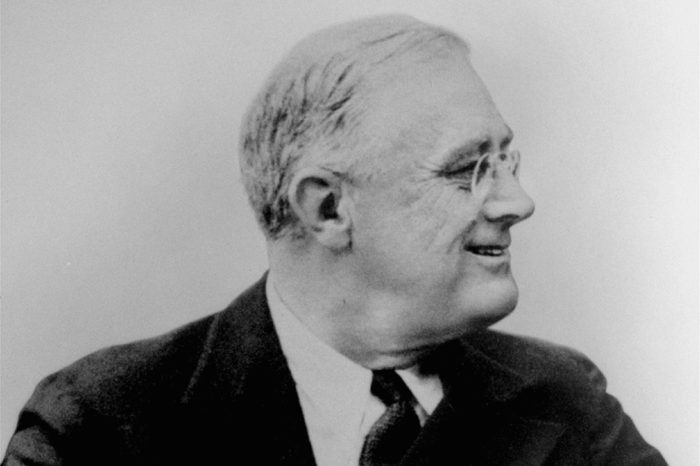
Franklin Delano Roosevelt
Before he began his 12-year tenure as president, Franklin Delano Roosevelt, with an IQ of 150.5, attended Harvard and later law school at Columbia University, and was an assistant secretary of the U.S. Navy. He guided the country through the Great Depression and World War II, and instituted the New Deal to improve the state of the American economy, including legislative measures like the Social Security Act, which are still in place today. His health was often tenuous after being diagnosed with polio at the age of 39, and he died in office in 1945.
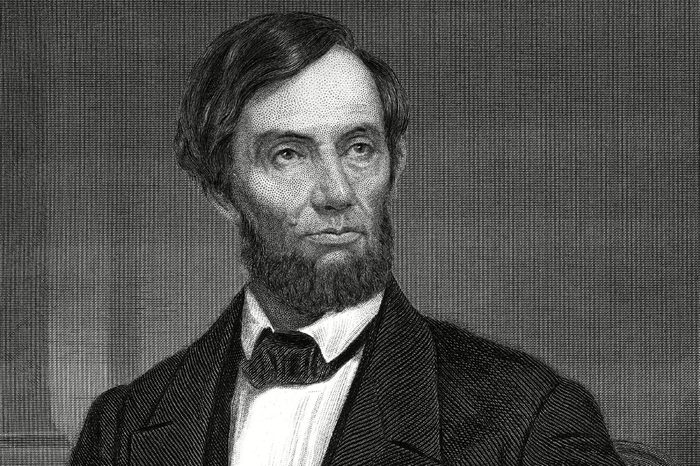
Abraham Lincoln
With an IQ of 150, Abraham Lincoln is the last on the list of presidents ranked by IQ, but certainly not the lowest (that’s Andrew Johnson, successor to Lincoln, if you’re curious). Lincoln is especially impressive considering he had very little formal schooling and was largely self-taught. He became a lawyer nonetheless and, as president, led the Union in the Civil War and passed the Emancipation Proclamation to abolish slavery. A skilled speaker, he delivered what is possibly the most famous presidential speech in U.S. history, the Gettysburg Address. Honest Abe never did get to see the end of the war, though, as it ended a month after he was assassinated in April 1865.
Why trust us
At Reader’s Digest, we’re committed to producing high-quality content by writers with expertise and experience in their field in consultation with relevant, qualified experts. We rely on reputable primary sources, including government and professional organizations and academic institutions as well as our writers’ personal experiences where appropriate. We verify all facts and data, back them with credible sourcing and revisit them over time to ensure they remain accurate and up to date. Read more about our team, our contributors and our editorial policies.
Sources:
- JSTOR: “Simonton Presidential IQ Study (2006): Presidential IQ, Openness, Intellectual Brilliance, and Leadership: Estimates and Correlations for 42 U.S. Chief Executives “
- National Constitution Center: “10 facts about John Quincy Adams on his birthday”
- History.com: “John Quincy Adams”
- National Constitution Center: “10 facts about Thomas Jefferson for his birthday”
- WhiteHouse.gov: “Our Founding Fathers: James Madison”
- Biography: “John F. Kennedy”
- CNN: “Bill Clinton Fast Facts”
- History.com: “President Clinton Impeached”
- Biography: “Woodrow Wilson”
- History.com: “10 Things You May Not Know About John Adams”
- Massachusetts Historical Society: Adams Family Letters Archive
- National Constitution Center: “10 little-known facts about President Theodore Roosevelt”
- White House Archives: “James Garfield”
- History.com: “Chester A. Arthur”
- Britannica: “Franklin D. Roosevelt”
- Franklin Delano Roosevelt Presidential Library: “FDR and Polio”
- History.com: “Abraham Lincoln”



















